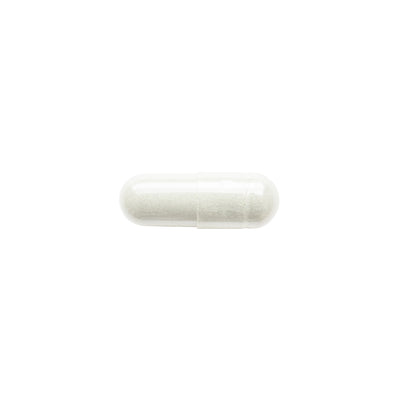Top supplements for energy: 5 alternatives to coffee

When it comes to coffee, it’s hard to know what to believe. Some studies claim it’s good for you; some studies claim it’s not. So if you want to be healthy, should you keep coffee in your diet? Should you cut back? It turns out the answer may be in your genes.
According to recent research, people with different genetic profiles metabolize caffeine in different ways. For some, processing caffeine is a snap: Their bodies break it down quickly, meaning it doesn’t make them feel shaky or tense, and they have no issues downing a cup before bed.
Others aren’t so lucky: They metabolize coffee slowly, making them more likely to feel side effects like the jitters, anxiousness and energy crashes. If you fall into this latter group, kicking your coffee habit is probably a good idea.
Luckily, you have options. Below, our nutrition experts have laid out your best alternatives to that cup of Joe.
1) Sharpen your thinking with mushroom “coffee”
Certain medicinal mushrooms have been shown to help your mind and body: They improve working memory and even reinforce your immune response.1 When you dry these mushrooms, grind them up and mix them with hot water, you get a creamy coffee-like beverage. So if you’re looking for a brain-friendly alternative to coffee—without the jitters—look for mushroom drinks in the powdered drink aisle. But heads up: Make sure you read the label carefully, as some of these products contain instant coffee.
2) Find your energy with Cordyceps
Cordyceps are a group of medicinal mushrooms known to improve energy, support stamina, help your heart, reduce oxidative stress and even mitigate the effects of aging. They were discovered centuries ago by farmers and herders who noticed animals eating the fungi in the wild, tried them out themselves and found they helped improve their energy.2 If you’re looking for a non-coffee boost, they’re a great, time-tested option. You can find Cordyceps in mushroom coffee and mushroom tea, or take it in supplement form.
3) Try Matcha for a bump without the slump
Matcha is a type of powdered green tea that makes an earthy, creamy beverage when mixed with water. Thanks to a moderate amount of caffeine, it can give you a little bump to start your day. But unlike coffee, it also contains L-theanine, an amino acid phytonutrient that counteracts the cortisol-increasing effects of caffeine, increasing your calm and avoiding spikes and crashes. For an extra treat, try it in a latte—with or without the sugar.
4) Fermented Ginseng: Still good after 5,000 years
Fermented ginseng, an adaptogenic herb, has been used in traditional Chinese medicine for millennia. One strain in particular—Asian or Panax ginseng—is known to have an uplifting effect on the nervous system while helping to manage stress. This is backed by some convincing science: In multiple randomized, placebo-controlled trials, supplemental fermented ginseng has been associated with improvements to quality of life, cognitive function and behavior.3
5) Stock up on vitamin B12
Vitamin B12 helps your nervous system stay healthy. If you’re deficient, you may feel low on energy or even a little blue.4 If you’re in that situation, adding some B-12 to your diet can help put a spring back in your step. Your best options? Animal products—including fish, meat, poultry, eggs and dairy—or a high-quality B-12 supplement.
Not sure where to start?
You can take a look at our selection of supplements.
Need more personalized approach ?
Contact us via Chat, available 7/7 a professional naturopath will be happy to help you.
This information is not intended as a substitute for the advice provided by your physician or other healthcare professional or any information contained on or in any product label or packaging. Do not use the information from this article for diagnosing or treating a health problem or disease, or prescribing medication or other treatment. Always speak with your physician or other healthcare professional before taking any medication or nutritional, herbal or homeopathic supplement, or using any treatment for a health problem. If you have or suspect that you have a medical problem, contact your health care provider promptly. Do not disregard professional medical advice or delay in seeking professional advice because of something you have read in this article.
Sources:
-
Phan CW, David P, Sabaratnam V. Edible and Medicinal Mushrooms: Emerging Brain Food for the Mitigation of Neurodegenerative Diseases. J Med Food. 2017;20(1):1-10.
-
Link R. Cordyceps … the Medicinal Mushroom. Dr. Axe. https://draxe.com/cordyceps/. Published September 23, 2018. Accessed March 29, 2019.
-
Bach HV, Kim J, Myung SK, Cho YA. Efficacy of Ginseng Supplements on Fatigue and Physical Performance: a Meta-analysis. J Korean Med Sci. 2016;31(12):1879-1886.
-
Penninx BW, Guralnik JM, Ferrucci L, Fried LP, Allen RH, Stabler SP. Vitamin B(12) deficiency and depression in physically disabled older women: epidemiologic evidence from the Women’s Health and Aging Study. Am J Psychiatry. 2000;157(5):715-21.
-
Top supplements for energy: 5 alternatives to coffee By Angie Kuhn, MS, RDN https://www.personanutrition.com/blog/coffee-alternatives-where-else-to-look-for-energy/



